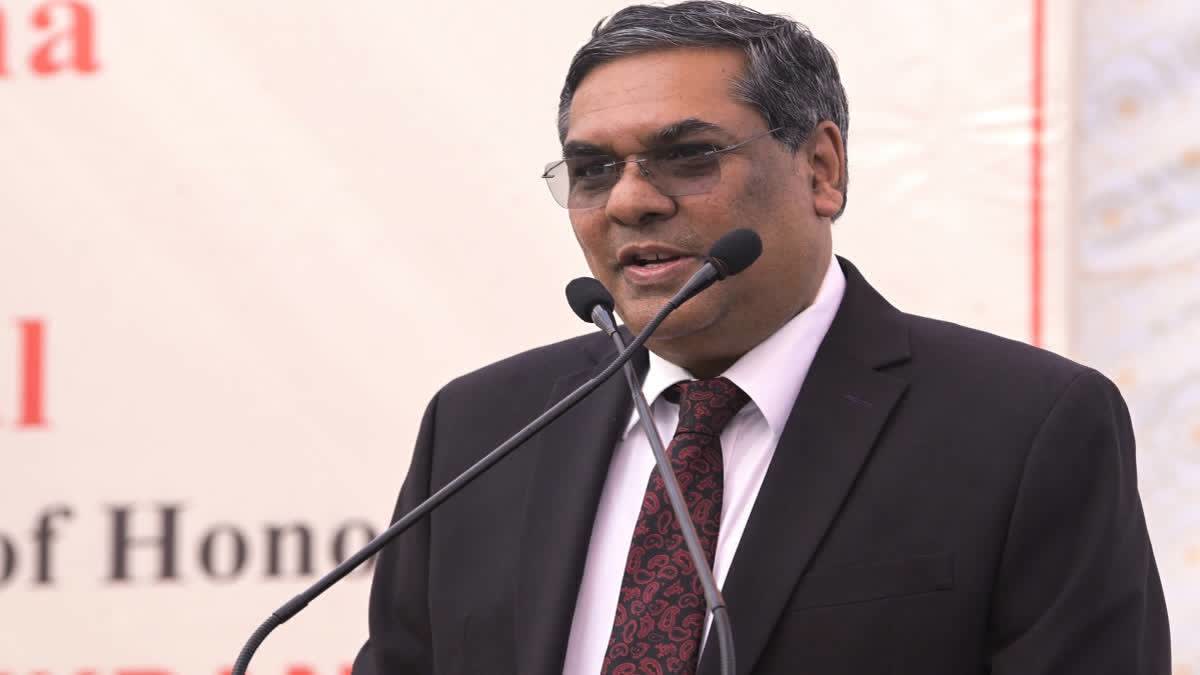Ramnagar: Chief Justice of India, Sanjeev Khanna, who was on a family trip to the Jim Corbett National Park, returned to Delhi on Sunday. During his overnight stay in the picturesque Dhikala tourist zone, he was overwhelmed by the biodiversity and wildlife.
The Dhikala tourist zone of Corbett NP was opened to tourists on November 15 and it is witnessing the arrival of important guests since. CJI Khanna reached here on December 7 and took a jungle safari with family. Before this, he was welcomed by the park administration at the Dhangandhi Gate. Tight security arrangements were made around the entries for the high-profile visitor.
According to sources, after enjoying safari and the night stay in Dhikala, Chief Justice Khanna left for Delhi on Sunday. The Jim Corbett National Park, the first to be accorded the tag under Project Tiger, is famous for its biodiversity and tiger density. A plethora of tourists and wildlife lovers from India and abroad throng here to live amid the flora and fauna.
It's worth mentioning here that CJI Khanna constituted a special bench to hear pleas challenging the validity of the Places of Worship Act (Special Provisions) Act of 1991. The 1991 law preserves the character and identity of religious sites as they stood on August 15, 1947.
The hearing in the matter gains significance against the backdrop of several suits filed in various courts, including the ones related to the Gyanvapi Mosque in Varanasi, Shahi Idgah Mosque in Mathura, and Shahi Jama Masjid in Sambhal, claiming that these were built after destroying ancient temples and seeking permission to offer Hindu prayers there.
A three-judge bench led by Chief Justice of India Sanjiv Khanna and comprising Justices Sanjay Kumar and K V Viswanathan will hear the pleas, listed for hearing on December 12.
The top court is seized of the pleas, including one filed by Ashwini Upadhyay, who has prayed that sections 2, 3 and 4 of the Places of Worship (Special Provisions) Act, 1991 be set aside. One of the main contentions raised in the plea is that these provisions take away the right of judicial remedy to reclaim a place of worship of any person or a religious group.
Recently, the managing committee of the Gyanvapi mosque has filed an intervention in the Supreme Court, seeking intervention in pleas challenging the validity of the Places of Worship (Special Provisions) Act, 1991, saying that the consequences of the declaration sought by the petitioner that the 1991 law was unconstitutional "are bound to be drastic."
Also Read:
- SC: Reducing Sentence In Murder Case Undermines Sanctity Of Life, Cruelty Demands Punitive Response
- After 26 Years of Unblemished Service Employment Terminated on Nationality Issue, SC Says Its “Illegal”
